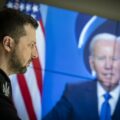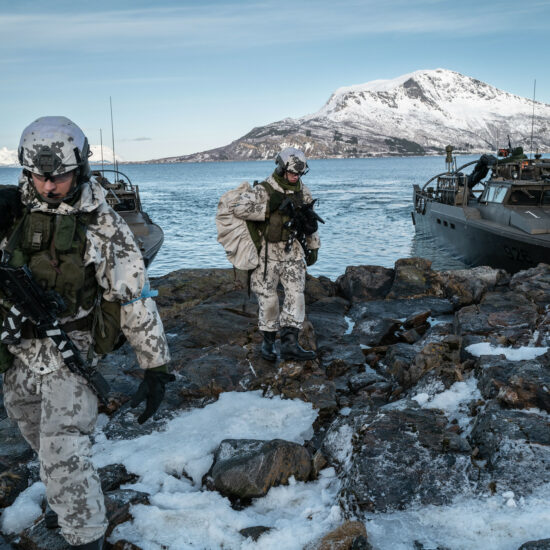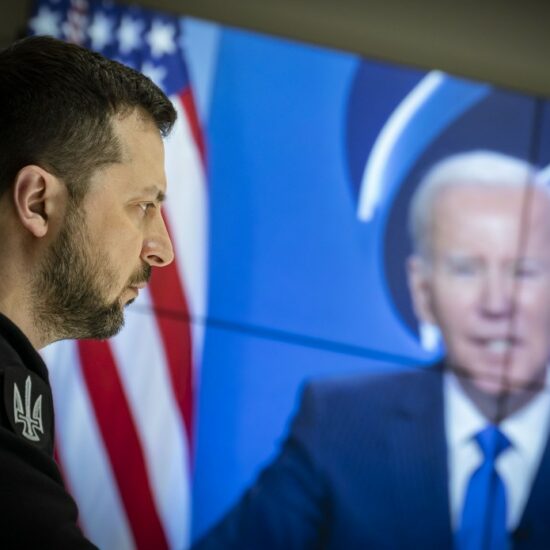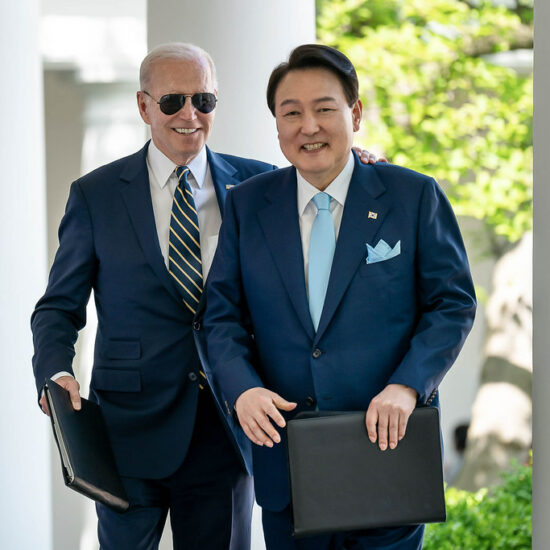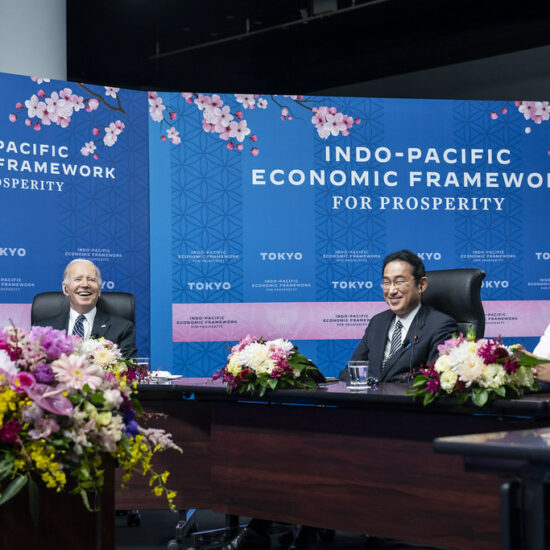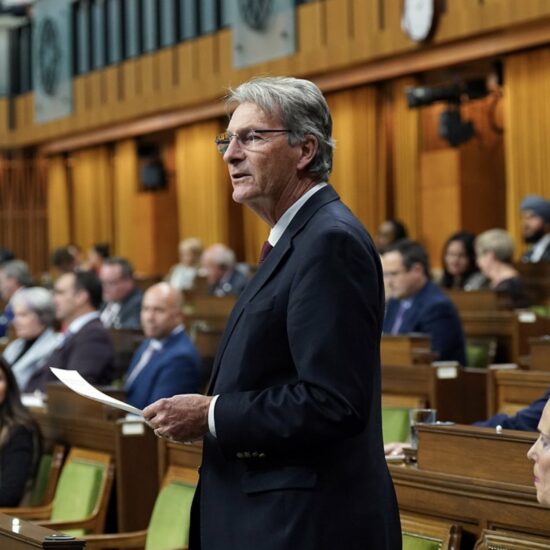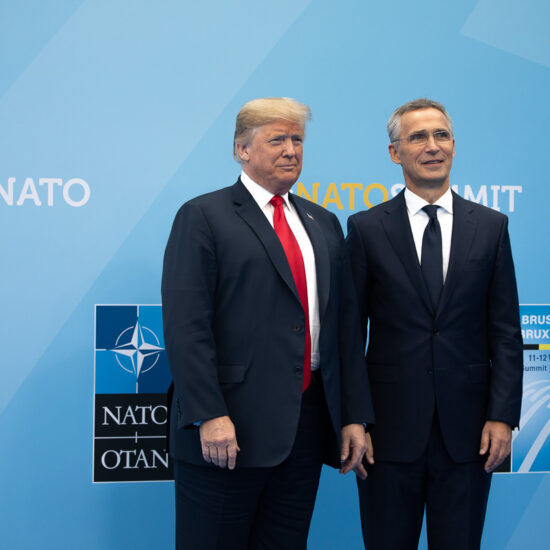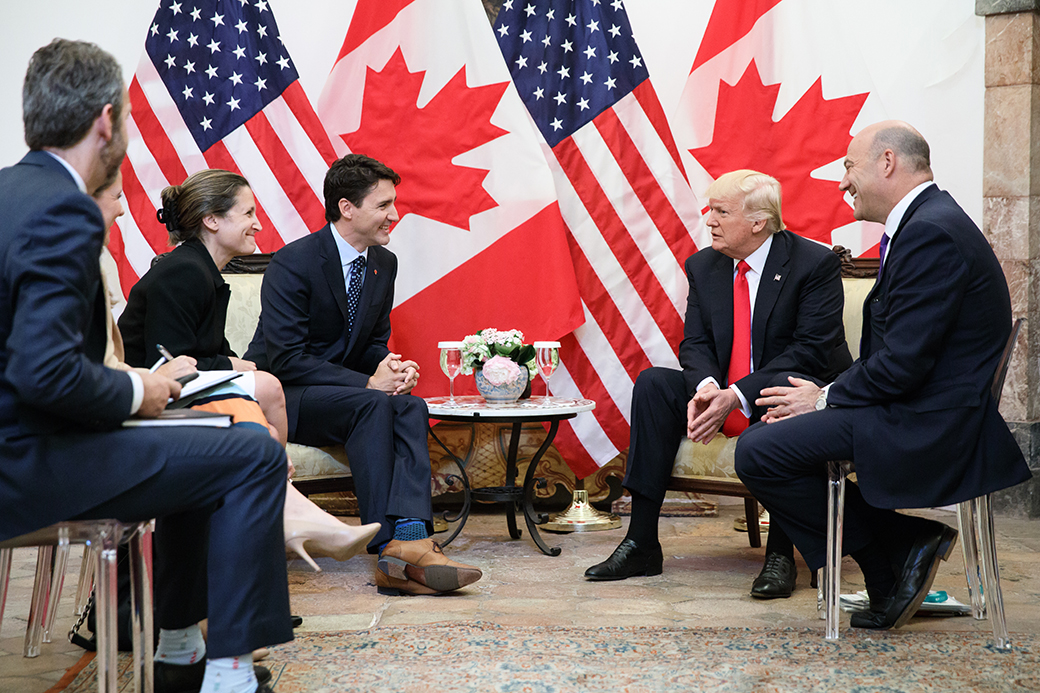
Image credit: Office of the Prime Minister
By Carlo Dade
This article is published as part of IPD’s China Strategy Project.
If the purpose of a China strategy is to advance and defend real, concrete, “hard” Canadian interests, then there are two first principles that guide such a strategy.
First, is that Canadian interests in dealing with China are not only, or even primarily, about China in the traditional bilateral sense. For Canada, it is about how it, as an extremely trade-dependent country, deals with a new, dominant, global economic power. In other words, instead of “How does Canada deal with China?”, the question needs to be rephrased as “How does Canada deal with a new ‘world’s largest economy’?”
China has, for the last five years, been the world’s largest economy by purchasing power parity. It is slated to surpass the United States as the world’s largest economy by GDP within a decade. With its rise to global economic dominance, China brings a unique and new economic governance model to drive growth and – with its Belt and Road Initiative that invests funds which the West has yet to match – literally reshape the physical infrastructure for the goods that Canada trades. For a country as trade dependent as Canada, this is critical. International exports accounted for 29% of Canada’s GDP in 2020. That is three times larger in share than the U.S. and roughly half more important than allies such as Australia.
Even if a country as trade dependent as Canada could somehow “disengage” from the Chinese market and diversify its C$28.8 billion exports and C$85.7 billion imports away from China, Canada’s producers and exporters and the governments that support them would still encounter China, Chinese influence, and the impacts of Chinese policy in the markets to which they reorient themselves. Or, to put it succinctly – even if you somehow manage to run away from China, you still run into China.
Yes, the vast majority of Canada’s trade still goes to the U.S. and that trade relationship and the politics that support it will dominate Canada’s economic and diplomatic strategy as long as that remains the case. But trade with the rest of the world is growing faster than trade with the U.S. In food and agriculture, Canada exports about half of what it produces. Of this, the share of exports which are not destined for the U.S. is slated to grow faster. As of 2021, Canada’s food and agricultural exports to China have been growing at an average rate of 17% over the last 2 decades. This is compared to a growing average rate of just 5% with the U.S. for the same period. Those products go into a world where China is often not only the largest consumer but also the largest producer of what Canada also produces.
China is not simply a successor to the U.S. that, similar to Japan during its rise, is simply tweaking the U.S. economic model. China is a new, distinct and vastly different economic governance model. Canada is also pursuing deeper trading relations with the Association of Southeast Asian Nations (ASEAN), Indonesia and India. Each of these markets has China as its largest foreign trade partner and foreign investor, and all of them have bilateral and pluri-lateral trade agreements with China. This reach by China also extends into our neighbourhood: the other Canadian target for trade negotiations, Brazil, also counts China as its largest trade partner and investor, as does most of this hemisphere. A strategy that does not start with acknowledging this economic reality – that China is a global economic force shaping markets across the world – is a strategy for a world that existed decades ago, not the world of today and certainly not the world of ten years hence.
A focus on the tangible intersections between the exercise of Chinese economic influence and Canadian interests in the Chinese market, as well as other markets influenced by China, is fundamental. The current focus of public and especially media discourse on the political and soft elements of China’s rise, as important as they are, desperately needs to be counterbalanced by a focus on the economic issues that will actually, materially, touch Canadians from coast to coast to coast. The immediate, material threats that Canada faces are not found in a military invasion from a rising and revisionist power, but rather in the repercussions of economic actions that shape the global trade upon which Canada is dependent. Yet these are the threats that are least understood by China critics in Canada, even if their awareness of them is clear when they are torn away from giving soundbites and think seriously about the full range of Canadian national interests.
Engagement with the world’s largest economy is not an endorsement of its policies; rather, it is self-defence. Not engaging is an abdication of responsibility for – and a betrayal of – the Canadian national interest.
The second critical point is that in the defence of our economic national interests, the Americans are not our friends. They are our competitors. Where interests align on security, intelligence and defence matters, the U.S. and Canada are trusted and privileged allies, but none of this equates to being “friends”. The anthropomorphization of a relationship built on realpolitik is fatal to Canada’s ability to define and pursue its self-interest.
The idea that Canada and the U.S are “friends” is an outgrowth of overlapping and geopolitical interests, seen in the founding of the North Atlantic Treaty Organization and the North American Aerospace Defence Command – organizations which the third North American nation, Mexico, refuses to join. Canadians believe that this should equate with special treatment. When the U.S. imposed tariffs under Section 232 of the Trade Expansion Act of 1962 on Canadian steel as a threat to U.S. national security, Canadians were shocked. By contrast, Americans largely shrugged or hid their heads in embarrassment, but not surprise. Canadians think of themselves as exceptional and special friends. For the U.S., Canadians are simply not Americans. And the reality is that when money is on the table, the U.S. has historically and will continue to put its own interests first.
An object lesson on this reality was given during the NAFTA re-negotiation. Here the U.S. used the negotiations for a new NAFTA in 2018, in essence, to scare and scar Canada from considering economic engagement with China by inserting a last-minute section on negotiating with “non-market” countries, section 32.10, into the agreement. A not unfair policy goal, except that at the exact same moment that the Americans were putting this clause into the new NAFTA, Washington was negotiating its own trade agreement with Beijing – the U.S.-China Phase One agreement – that took market share from Canadian farmers and handed it to US farmers. Another object lesson comes from the fight to preserve the Trans-Pacific Partnership trade agreement after the U.S. withdrawal. Under the Trump administration, and arguably under the Biden administration as well, the newly labelled CPTPP has become as much a rules-based trade bulwark against unilateral trade actions and rule-breaking from the U.S. as from China.
Managing the tension between political and economic interests has been a constant in the U.S.-Canada relationship and will be so in the future. It is an unwelcome burden, but it is far from unmanageable. From Diefenbaker through Mulroney through Martin, it has been done successfully. Explicit recognition of this tension must, however, be front and centre in any strategy in which Canadian economic interests are a primary consideration. During political debates in Canada over whether the country should continue with or withdraw from the TPP after the Americans left, there were concerns that pursuing the TPP would harm the NAFTA renegotiation and endanger the Canada-U.S. trade and political relationship. In reality, the only harm that was done to Canada from its ratification of the TPP was done by Canadians worrying about non-existent harm. This overreaction to the imagined fears of how the U.S. would react to Canada ratifying the TPP after Washington pulled out may be what planted the seeds in American minds to insert their infamous non-market country (aka China) clause into the new NAFTA.
A strategy that begins with acceptance, as opposed to recognition, of U.S. perspectives is a strategy that a priori cedes Canadian economic interests. A strategy that starts with a strong definition and advancement of Canadian interests and that forces the Americans to react, if they notice at all, is critical given the imbalance in the Canada-U.S. relationship.
The Americans are hard at work on their China strategy including the House and Senate versions of massive, billion-dollar bills to enable U.S. competition with Beijing. Both versions of the current bills call for specific, unique, bilateral strategies to engage Canada in the advancement of the objectives of the acts. Given that the House version of the act is titled the “America Creating Opportunities for Manufacturing, Pre-Eminence in Technology, and Economic Strength Act” (author’s emphasis), the best means to survive the inevitable need to cooperate with the Americans on their “America First” Indo-Pacific strategy is going into those negotiations with a strong “Canada First” policy.
Carlo Dade is an Honorary Senior Fellow at the School of International Development and Global Studies at the University of Ottawa.

